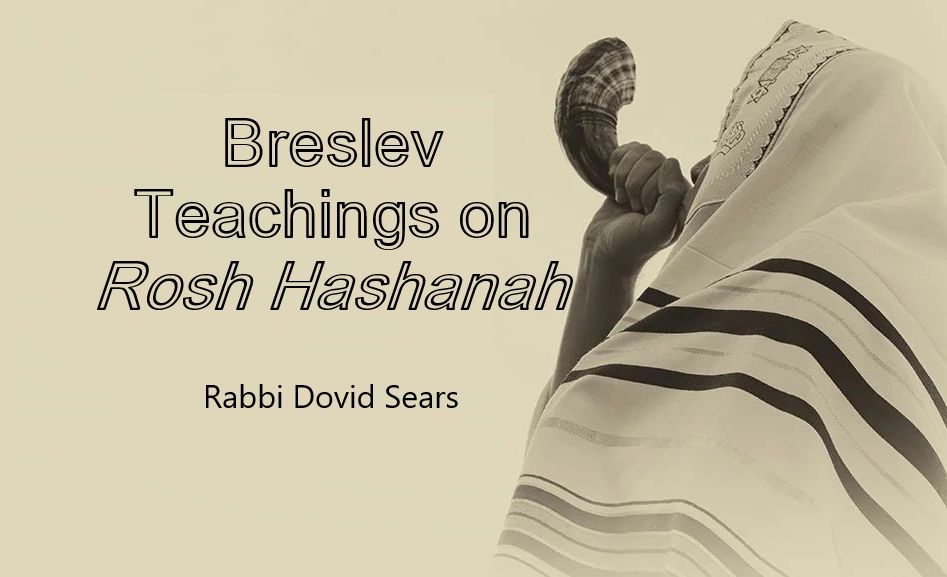
Breslever or Faker? Relating to Customs Properly
The woman started muscling her way in to Rebbe Nachman's gravesite, shoving the other women aside...and did she ever yell, like a pack of demons in the Ukraine night...

When I first started getting into Breslev, more than eight years’ ago, I was definitely considered the town weirdo. I mean, who talked to G-d?!?! Who even talked about G-d?!?
A lot’s changed since then. One of the biggest changes is that Breslev has now become pretty ‘cool’, particularly in Israeli circles. Becoming an obvious Breslev Believer is a short-cut for anyone who wants to make an impression that they are a ‘serious’ Jew or a deep-thinker.
It should all be great, and in many, many ways, it is. But there’s no perfection until Mashiach comes, and as with all amazing developments and wonderful spiritual progressions, there is also a dark-side.
Recently, I had the massive privilege of being in Uman again. I was sitting in the Tzion (the enclosed area around Rebbe Nachman’s tomb) doing some quiet hitbodedut when a new ‘Breslev Believer’ came in. It was dawn, and the tomb was almost empty, except for three or four women who had fallen asleep sitting right next to the tomb.
They’d been there, asleep, for hours, and it was pretty hard to get near the tomb. I took a chair a couple of  rows back, and continued talking to G-d from there. But the newcomer was not very happy about the situation. She marched up to the sleeping devotees, woke them up, and started berating them for staying there too long.
rows back, and continued talking to G-d from there. But the newcomer was not very happy about the situation. She marched up to the sleeping devotees, woke them up, and started berating them for staying there too long.
“I also want to get close to the Tzaddik!!” she yelled at them, and then started forcibly trying to move their chairs out the way. (As a side note: bullying other people is usually NOT the best way of getting close to the Tzaddik, at least in a spiritual sense.)
Once the sleeping devotees had moved, the newcomer sprawled herself over the tomb, and started weeping. My heart softened. I started to think: ‘Maybe, this poor woman was just so full of pain and suffering, and that’s why she acted so aggressively…’ The crying continued. The crying turned into some weird wail. The wailing continued. The wailing turned into some weird ‘primal scream’ thing that started to sound more and more disturbing – which is when I realized that I was watching a 100% faker in action.
How do I know? Simple: for the last eight years, I’ve spent an awful lot of hours sat in an awful lot of kivrei tzaddikim (graves of holy people) watching an awful lot of people go through some very profound emotional and religious processes. Before having breakdowns at Rabbenu was ‘fashionable’, people never, ever wailed like a banshee for half an hour.
Yes, they cried; yes they sobbed loudly; yes, often they let out a moan, or a sigh, or a heartrending sound of anguish – but not for half an hour, and not like that. As the woman continued her fake, theatrical sobbing, I found myself getting more and more disturbed by it. It was literally hurting my soul to hear her (which was another BIG sign that the person was not coming from a good place, because the genuine cries of a heartbroken Jew are some of the most moving sounds you could ever hear.)
What to do? Everything comes from G-d, even horrible fakers, so I decided to ask G-d to shut the woman up, because I couldn’t take it any more. 30 seconds later, she went quiet. Five minutes later, head held high, she left.
I sound SO TERRIBLY JUDGEMENTAL, don’t I? How do I know she wasn’t the real deal? How do I know it wasn’t ‘sincere’? How do I know? Again, the answer is very simple: when something is good, it makes us feel good. When something is bad, it makes us feel bad. And this woman was literally making me feel nauseous.
It’s an enormous blessing that Breslev is getting so popular, but we have to all keep our eyes peeled for people who are trying to warp religious practices for their own ends. Another example: I was sitting in the Tzion when someone on the men’s side started singing a Breslev song about Rebbe Nachman. The first verse sounded really lovely – and then they started singing in such a twisted, terrible, mocking way that once again, my soul started screaming for help.
We make all sorts of excuses for these people: “they’re just trying to ‘make other people happy'”; “Rabbenu said it’s OK to act like a lunatic to avoid sadness and depression”; “everyone has their OWN WAY of serving G-d”…
Very nice. But we come back to our simple rule of thumb: If the singing, the ‘wailing’, the mockery and clowning around is making me feel uncomfortable and stressed, it’s not coming from a good place. If I feel sick listening to it, it CAN’T be good. Full stop. And if it’s not good, then it’s bad, and we need to put our guard up against it.
May we all merit to come close to G-d, and to his Tzaddikim, in a genuinely holy, happy, and healthy way.
* * *
You’re welcome to write Rivka Levy at rivkawritesback@gmail.com











Tell us what you think!
Thank you for your comment!
It will be published after approval by the Editor.